In a world where data breaches and downtime are as common as bad coffee, blockchain cloud computing emerges as the superhero we didn’t know we needed. Imagine a cloud service that’s not just floating around aimlessly but is fortified with the power of blockchain. It’s like having a vault in the sky that keeps your data safe while making it accessible anytime, anywhere.
Table of Contents
ToggleUnderstanding Blockchain Cloud Computing
Blockchain cloud computing integrates blockchain technology with cloud computing services. This approach provides enhanced security, transparency, and data integrity.
Definition and Key Concepts
Blockchain cloud computing refers to the use of distributed ledger technology within cloud computing environments. This combination creates a decentralized storage solution instead of traditional centralized models. Data stored on the blockchain remains immutable, meaning it cannot be altered or deleted. As a result, this technology guards against unauthorized access and data breaches. Key concepts include decentralization, data integrity, and enhanced security, all of which contribute to a more robust cloud computing experience.
How It Works
Blockchain cloud computing operates through a network of interconnected nodes. Each node contains a complete copy of the data, ensuring redundancy. When a new transaction occurs, it gets validated by a consensus mechanism and recorded on the blockchain. Smart contracts automate processes, allowing for seamless execution of agreements without intermediaries. These mechanisms increase the efficiency of data management while maintaining high security levels. Furthermore, users can access their data from anywhere, thanks to the cloud’s inherent flexibility.
Benefits of Blockchain Cloud Computing

Blockchain cloud computing offers significant advantages for users and businesses alike. Enhanced security and improved transparency stand out as the two primary benefits of this innovative approach.
Enhanced Security
Enhanced security emerges from the decentralized nature of blockchain technology. Data is stored across a network of nodes, making it less vulnerable to single points of failure. Unauthorized access gets mitigated through cryptographic measures, ensuring data remains secure. Each transaction undergoes verification by multiple nodes before adding it to the ledger. This process prevents data tampering and hacking attempts. Users benefit from real-time monitoring of their data, allowing swift detection of anomalies. Smart contracts automatically execute pre-defined actions when specific conditions are met, increasing overall operational security.
Improved Transparency
Improved transparency defines another significant advantage of blockchain cloud computing. Every transaction recorded on the blockchain is accessible to authorized users, creating an open and verifiable system. Immutable records contribute to building trust among stakeholders, as anyone can trace the data throughout its lifecycle. Chain data remains visible, allowing for audits and compliance checks without external intervention. Users find reassurance in knowing that any changes to data require consensus from the network’s nodes. This visibility ultimately fosters accountability among participants, enhancing overall operational integrity in cloud environments.
Challenges and Limitations
Blockchain cloud computing faces several challenges that can impact its widespread adoption. Scalability remains a critical concern, affecting the performance of blockchain networks as they grow and handle increased transaction volumes.
Scalability Issues
Scalability issues complicate the ability of blockchain cloud computing to handle large-scale operations. Increasing the number of nodes can lead to delays in transaction processing due to the consensus mechanism employed. Transactions often require verification from multiple nodes, which can cause bottlenecks during peak usage times. Performance may decrease as the network expands, making it difficult for businesses to maintain efficiency. Innovations like sharding and layer-two solutions aim to address these challenges, but the effectiveness of these technologies remains to be fully realized.
Regulatory Concerns
Regulatory concerns pose another significant challenge to blockchain cloud computing. Governments around the world continue to grapple with how to classify and regulate blockchain technologies. Compliance with existing laws and regulations, including data protection and privacy standards, adds complexity for businesses adopting this technology. It remains crucial for companies to navigate these regulations to avoid legal repercussions. Moreover, the lack of uniform regulatory frameworks can hinder cross-border operations, impacting international businesses that utilize blockchain cloud services.
Future Trends in Blockchain Cloud Computing
Blockchain cloud computing continues evolving, with promising trends indicating future advancements. The integration of various technologies enhances its overall capabilities.
Integration with Other Technologies
Artificial intelligence, internet of things, and 5G technology increasingly complement blockchain cloud computing. Artificial intelligence improves data analytics and decision-making processes through predictive insights. Internet of things devices leverage blockchain to securely transmit data, enhancing connectivity and efficiency. Additionally, 5G technology supports faster data transfer rates, minimizing latency in blockchain applications. These technological integrations strengthen performance, offering users more robust and dynamic solutions.
Potential Market Growth
The blockchain cloud computing market is projected to expand significantly, driven by demand for secure data solutions. Experts estimate a compound annual growth rate of over 30% in the upcoming years. Such growth stems from the increasing adoption of distributed ledger technologies across industries like finance, healthcare, and supply chain management. Investment in research and development fosters innovation, enabling businesses to adopt more efficient cloud solutions. This expansion reflects a shift toward decentralized models facilitating greater data security and operational efficiency.
Blockchain cloud computing stands at the forefront of technological innovation. By merging the strengths of blockchain with cloud services it addresses critical issues like data security and integrity. This transformative approach not only enhances user trust but also paves the way for new operational efficiencies.
As businesses increasingly adopt this technology the potential for growth remains significant. The integration of emerging technologies promises to further amplify its capabilities. With ongoing advancements and solutions to current challenges the future of blockchain cloud computing looks bright. It’s clear that this evolution will redefine how data is stored and managed across industries.








